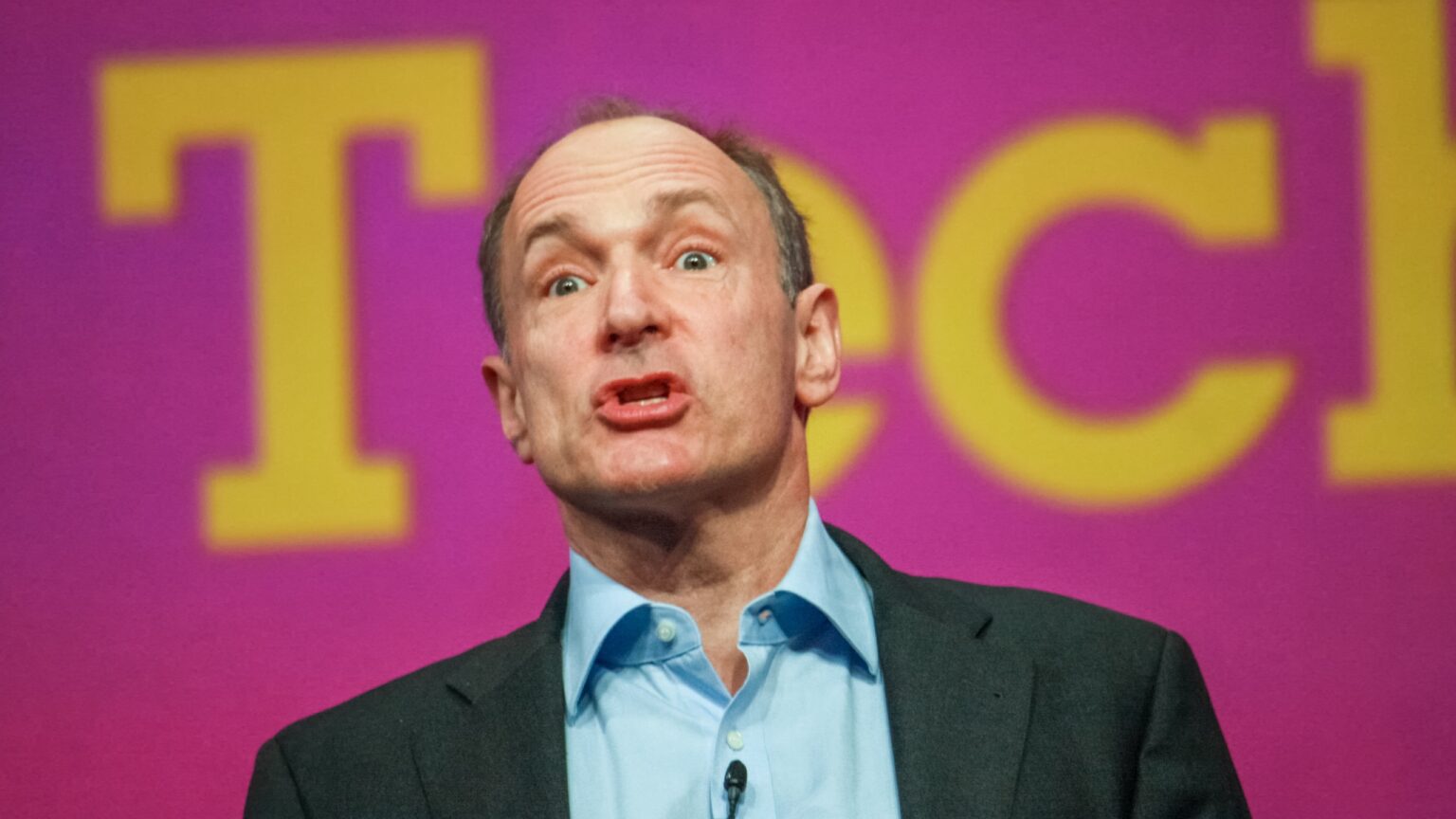Artificial intelligence and virtual reality (VR) will become the next big thing on the World Wide Web, or Internet, its designer Tim Berners-Lee predicted, marking the 35th anniversary of his invention, which almost failed to see the light of day.
Speaking to CNBC this week, Berners-Lee also said that over the next few years, internet users will take full control of their personal data from Big Tech companies like Apple, Google and Meta. People would own the data via a data store, or “pod”, he says.
The British computer scientist made a third prediction, perhaps the more ominous of them all. In future, he states, a large technology firm could break-up due to changes in the regulatory environment. His forecasts are looking at the next 35 years of web development.
Also read: Berners-Lee Envisions AI Aide For All, Slams Cryptocurrencies
Personal AI assistant for everyone
As AI chatbots such as OpenAI’s ChatGPT and Google’s Gemini go viral, Berners-Lee sees a future where AI assistants will be able to do more for humans, transforming the way we interact with the internet. Everyone will have their own AI to do things for them.
“Some people worry about whether, in 35 years, AI will be more powerful than us,” said the tech guru. “One of the things I predict – but it’s something we may have to fight for – is you will have an AI assistant, which you can trust, and it works for you, like a doctor.”
Berners-Lee also spoke about how people will gain control of their personal data from huge tech companies and that virtual reality, or VR, would become a major tool for accessing and using the web. Virtual reality headsets like Meta’s Quest 3 or Apple’s Vision Pro are often used to enter the metaverse, for business or pleasure.
“You’ll think of your data pod as your digital space, you’ll think of it as being one thing you’re very comfortable with,” he explained. The inventor expects people to have a set of apps that they trust, which they can use to share information with others.
“All of your to do lists, calendar events and so on, and all the different parts of your data, will come together, so the ability to live your life becomes much more powerful,” Berners-Lee said, adding:
“You can go do things with a VR headset, and then when you take the VR headset off, you could do it with a huge screen.”
“And whenever you move, you can grab your phone and the experience will be as one. It should very smoothly go between different devices,” he detailed.
Berners-Lee expects that one of the Big Tech companies like Mark Zuckerberg’s Meta or Microsoft could eventually crumble due to the rise of artificial intelligence and other regulatory demands.
“Things are changing so quickly. AI is changing very, very quickly. There are monopolies in AI. Monopolies changed pretty quickly back in the web,” said the tech pioneer.
“Maybe at some point in the future, agencies will have to work to break up big companies, but we don’t know which company that will be,” he added.

Creating the World Wide Web
Tim Berners-Lee is credited with inventing the World Wide Web in 1989 while working at the physics research center CERN, which is near the Swiss capital of Geneva.
He proposed to create a system where he and other staff could share information among themselves. The project almost failed to see the light of day after a supervisor appeared not too impressed with it, initially describing the system as “vague but exciting.”
That project would later become the World Wide Web, as we know it today. In 1993, Berners-Lee had to convince CERN into releasing the Web protocol and source code into the public domain for free.
“When it started, I couldn’t have predicted that it was going to be like this, this change,” Berners-Lee told CNBC.
He revealed that traffic to the very first website, info.cern.ch, went “up by a factor of 10 every year, so doubling every four months.”
“We lost track of the logs because they cut off. Now this is going to be a serious thing. We need to make sure it doesn’t collapse,” he added.
In marking the 35th anniversary of the web, Berners-Lee showed disappointment at how his invention has been (mis)used by some individuals or corporations. He pointed to AI-driven social media feeds that he says have left people “feeling angry and upset, or hateful.”









 and then
and then